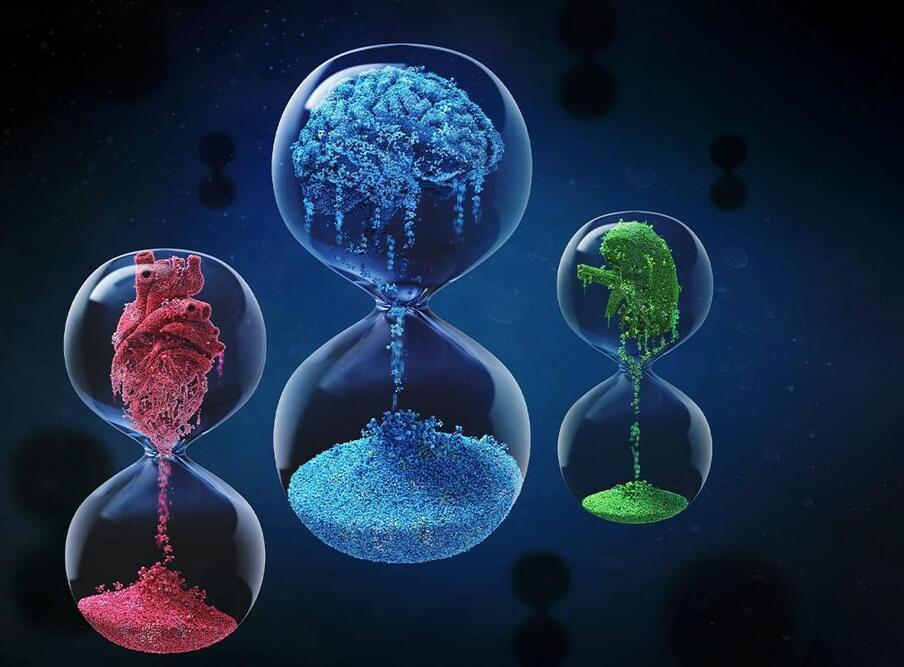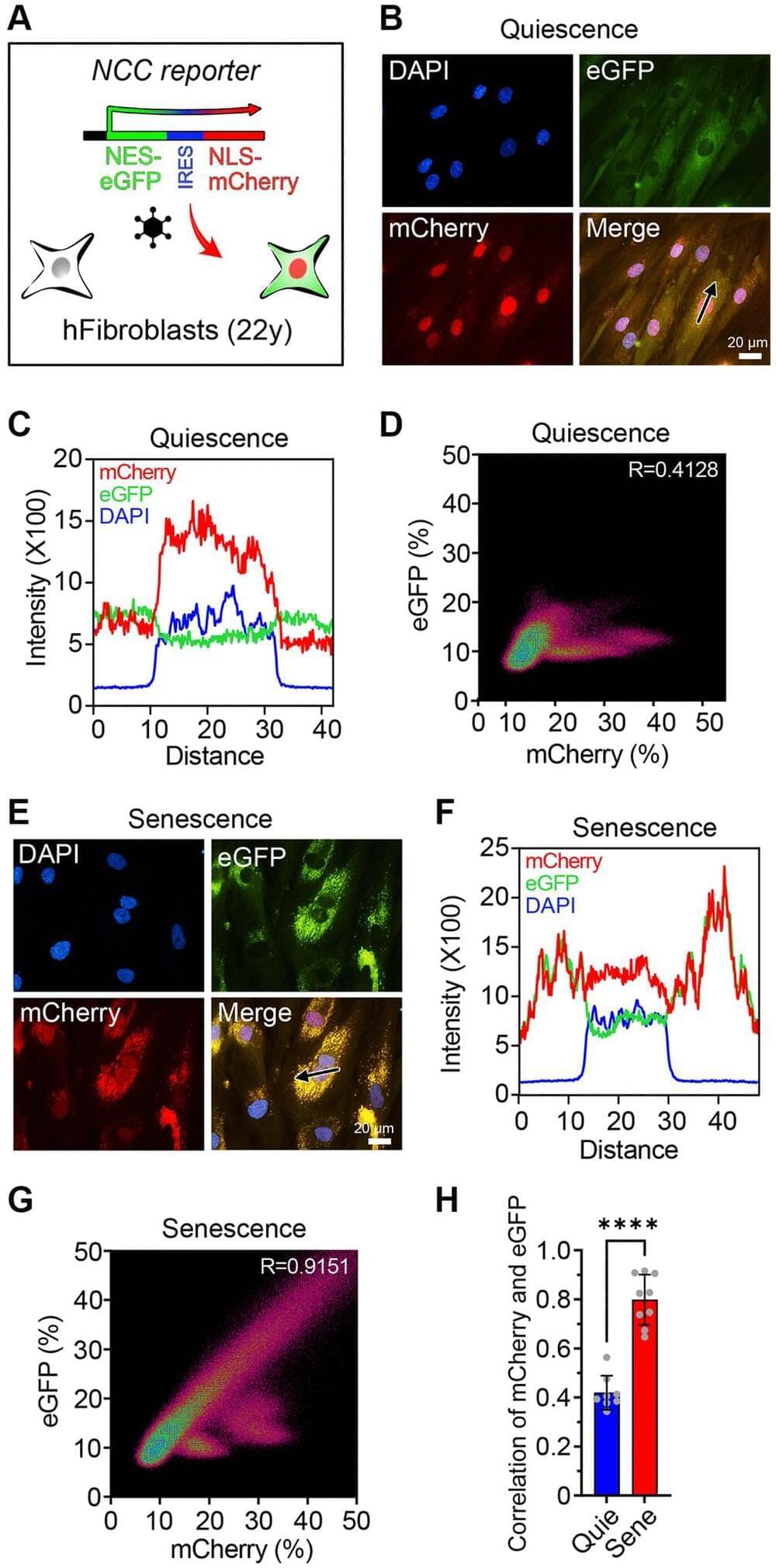In the final episode of this season, Dr. David Sinclair and Matthew LaPlante focus on current and near-future technologies relevant to health and aging. In addition to discussing the utility of wearable sensors and biological age measurements, they highlight innovative research aimed at reversing biological age. The societal effects of therapies that successfully extend healthspan and/or lifespan are also considered. #DavidSinclair #Longevity #Aging
Category: life extension – Page 188
Unlocking the Secrets of Aging: Science, Studies, and Interventions for Longer, Healthier Lives
In this episode, Dr. David Sinclair and co-host Matthew LaPlante discuss why we age. In doing so, they discuss organisms that have extreme longevity, the genes that control aging (mTOR, AMPK, Sirtuins), the role of sirtuin proteins as epigenetic regulators of aging, the process of “ex-differentiation” in which cells begin to lose their identity, and how all of this makes up the “Information Theory of Aging”, and the difference between “biological age” and “chronological age” and how we can measure biological age through DNA methylation clocks. #Aging #DavidSinclair #Longevity
NMN, NR, Resveratrol, Metformin & Other Longevity Molecules
In this week’s episode, Dr. David Sinclair and co-host Matthew LaPlante zero in on drugs and supplements that have been reported to combat aspects of aging. They share the latest experimental and clinical data for NAD boosters (these being NR, NMN, NAD IV drips and shots), resveratrol, fisetin, quercetin, rapamycin, spermidine, metformin, and berberine.
Optimizing Health with Light: Sunlight, Blue Light & Red Light
I describe the mechanisms by which different wavelengths of light impact the cells, tissues and organs of the human body, and how specifically timed light exposure of specific wavelengths can be used to improve sleep, enhance alertness, modulate hormone levels, and improve mood. I also explain the use of ultraviolet and infrared phototherapies to relieve pain increase testosterone and estrogen levels; improve skin health, appearance and wound healing; and how red light can be used to offset age-related vision loss and provide neuroprotection. Throughout the episode, I describe the mechanisms of light-based therapies and actionable tools that people can use positively impact mental and physical health.
Biological Immortality by 2030: Implications & Predictions
The concept of biological immortality challenges the belief that death gives meaning to life and raises questions about the potential societal implications and ethical considerations of living indefinitely.
Questions to inspire discussion.
What is biological immortality?
—Biological immortality refers to the potential for humans to live indefinitely due to advancements in science and technology, leading to the elimination of age-related diseases and the aging process.
Why Do Humans Grow Old?
I like the chapter “would you want to be”.
Explore your DNA with ADNTRO! Use the code TODAY to get a 10% discount on the DNA kit: https://bit.ly/3GbE3sg or use the code TODAYRAW to get a 10% discount on your full DNA report: https://bit.ly/3sDuZJM
Ah, immortality, previously only for the gods and individuals with a fetish for chopping each other’s heads off. In more modern times, science is coming closer and closer to both identifying the tapestry of things that cause humans to grow old, and slowly but surely taking the first steps into finding ways to delay and even reverse this process for fun and profit. So, just what causes individuals of the human persuasion to grow old and die, who was the oldest confirmed human, are there any living things that are biologically immortal, and if there was an option to become biologically immortal, would you take it?
0:00 Intro.
3:42 The Oldest Human.
4:50 The Lobster.
9:01 It’s Not the Years Honey, It’s the Mileage.
13:32 Would You Want to Be Biologically Immortal?
17:24 The Senescent Cell Problem.
20:46 A Myriad of Other Factors.
26:04 The Biologically Immortal Creatures.
Author: Daven Hiskey.


A look inside the United States’ first-ever certified “Blue Zone” located in Minnesota
ALBERT LEA, Minnesota (WCCO) — Living to 100 may seem like a major feat, but there are communities around the world where it’s common — they’re called “Blue Zones.”
Minnesota native Dan Buettner is one of the foremost experts on how they work. Buettner’s new Netflix documentary and New York Times bestsellers reveal the secret recipe to longevity.
There will be a point where we solve aging — this decade is that moment in time
XPRIZE founder Peter Diamandis on the biggest prize the world has ever seen – and why a successful outcome will mean we’ll all be winners.

Chemically induced reprogramming to reverse cellular aging
Aging | doi:10.18632/aging.204896. Jae-Hyun Yang, Christopher A. Petty, Thomas Dixon-McDougall, Maria Vina Lopez, Alexander Tyshkovskiy, Sun Maybury-Lewis, Xiao Tian, Nabilah Ibrahim, Zhili Chen, Patrick T. Griffin, Matthew Arnold, Jien Li, Oswaldo A. Martinez, Alexander Behn, Ryan Rogers-Hammond, Suzanne Angeli, Vadim N. Gladyshev, David A. Sinclair.